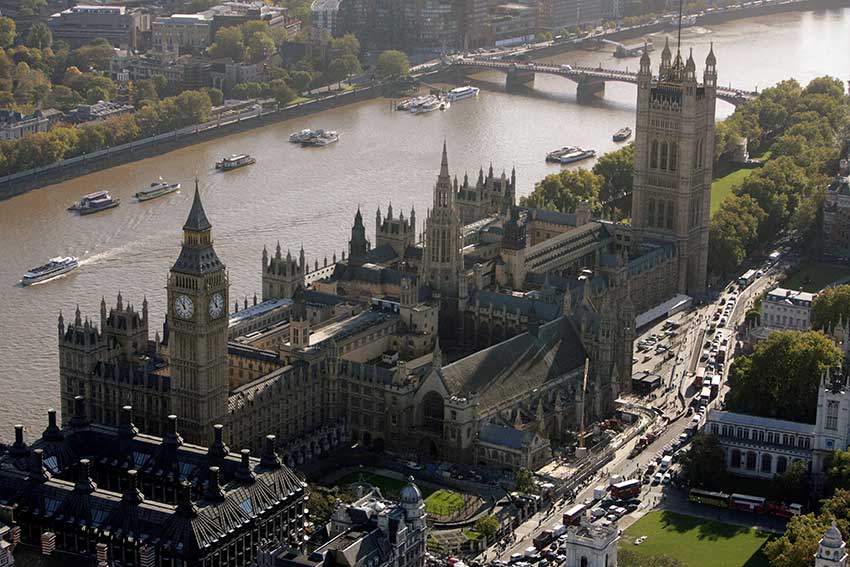
With the NSW debate over “voluntary assisted dying” returning to Parliament this week, a decision of the UK House of Lords to reject an attempt to legalise euthanasia in England and Wales comes as a ray of hope for anti-euthanasia advocates.
Amendment 170 to the Health and Social Care Bill would have forced the British government to introduce assisted suicide legislation in the near future. But members of the House of Lords, Britain’s upper house, rejected the amendment, 179-145, following a 16 March debate.
The defeat of the amendment represents the 12th time in 25 years that the British Parliament has dismissed an attempt to legalise assisted suicide, which is punishable under the Suicide Act 1961 by up to 14 years in jail.
What momentum?
Danny Kruger, chairman of the All Party Parliamentary Group for Dying Well, which opposes euthanasia and assisted suicide, said in a statement, “this is ample evidence that assisted suicide enjoys neither momentum nor support.”
The Health and Social Care Bill is aimed at reforming and restructuring Britain’s National Health Service and is reaching its final stages of the parliamentary process, having already passed through the first chamber, the House of Commons.
The assisted suicide amendment would have imposed an obligation on the government to introduce legislation “to permit terminally ill, mentally competent adults legally to end their own lives with medical assistance” within a year of the bill becoming law.
Euthanasia’s shifty tactics
The government opposed the legislation because it would set a precedent whereby politicians could dictate legislative programs ahead of terms of office.
Labor MLC Greg Donnelly, an outspoken voice in the NSW Parliament against “voluntary assisted dying”, called the attempt to push euthanasia through the UK Parliament “a shifty move by physician assisted suicide proponents” that “soon tumbled over when it became clear what the relatively small amendment … was designed to achieve”.
“It may have been sharp politics but to try and sneak in this significant legislative proposal, through an amendment in such a debate, demonstrates once again the ‘whatever it takes’ attitude of physician assisted suicide proponents in the UK Parliament,” Mr Donnelly said.

Opposition the only roadblock in NSW
“Like their counterparts in the NSW Parliament they are highly motivated, very determined and are committed to not giving up until they achieve their political objective.
“The only thing that stands between them and success is strong, forthright and unrelenting resistance and opposition to their wrongheaded political agenda.”
Margaret Somerville, professor of Bioethics at the University of Notre Dame Australia and a global authority on the ethics of euthanasia, praised the House of Lords for rejecting the amendment.
British decision also a local rebuke
“The upper house is called ‘the chamber of sobre second thought’. It’s supposed to bring the wisdom of the elders – like our Aboriginal Australians look to our elders for wise advice not just how to protect individuals but also the mob,” Professor Somerville said.
“They decided with a really substantial majority that this is a very bad idea.”
The decision also serves as a strong rebuke to pro-euthanasia advocates who argue that voluntary assisted suicide is “inevitable”.
Undermining hope
“I identify that as a strategy of the pro-euthanasia advocates,” Professor Somerville said.
“They go around telling everyone, ‘We don’t want to hear you don’t think it’s a good idea, we want to hear what you think would be good regulation. It’s going to happen anyway.’
“It’s worked, and a lot of people who think it’s a bad idea have lost hope they can do anything to stop it. That’s the biggest risk at the moment.
Vulnerable especially at risk
“The people who think it’s a terrible idea must not give up, they must not!” Prof Somerville said.
Dr Brendan Long, CEO of Right to Life NSW, said the House of Lords decision shows “it is not normal or usual for Western democracies to legislate assisted dying”.
“I think Baroness Masham spoke well when she said, ‘Many vulnerable people feel that, if the assisted dying law is changed, they could be pressured into assisted dying because they feel that they are a nuisance and because they need looking after.’
Corrupting medicine
“NSW politicians considering the current bill should reflect that the UK parliament has concluded that it is not safe to legislate for assisted suicide,” Dr Long said.
Dr Bernadette Tobin, from the Plunkett Centre for Ethics at the Australian Catholic University said the Lords’ decision to oppose the amendments because they would bind future governments to a legislative program, was “a good reason for rejecting it”.
“To have passed this amendment would have been deeply anti-democratic,” Dr Tobin said.
“Legalising physician-assisted suicide would corrupt the practice of medicine and put the lives of the elderly and those with disabilities at risk.
“Thank God for the decision of the House of Lords. It would be marvellous if it prompted our own politicians to pause for thought.”
Also contributing to this article was CNS
Related
- Editorial: a last chance for NSW to be wise, humane, compassionate – and visionary
- Archbishop Anthony Fisher OP addresses NSW Parliamentary committee on euthanasia
- Bernadette Tobin: legalise euthanasia, watch it break out
